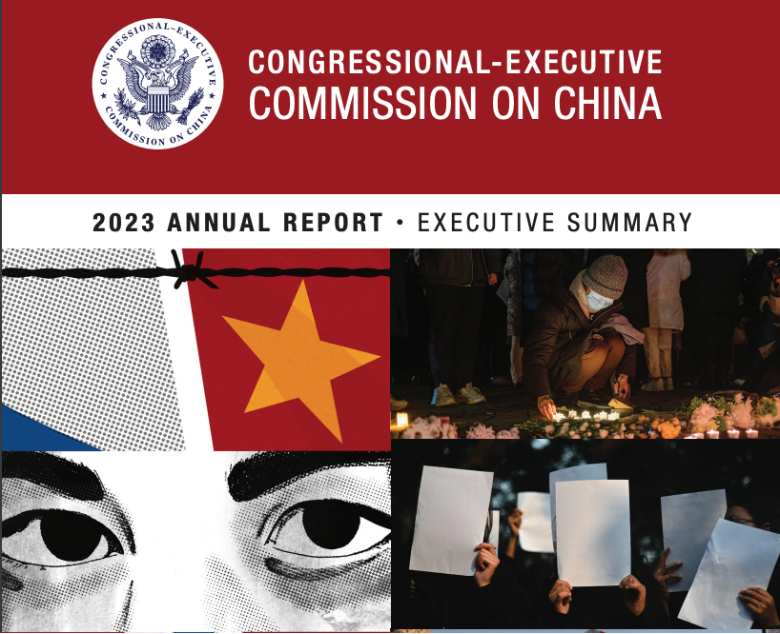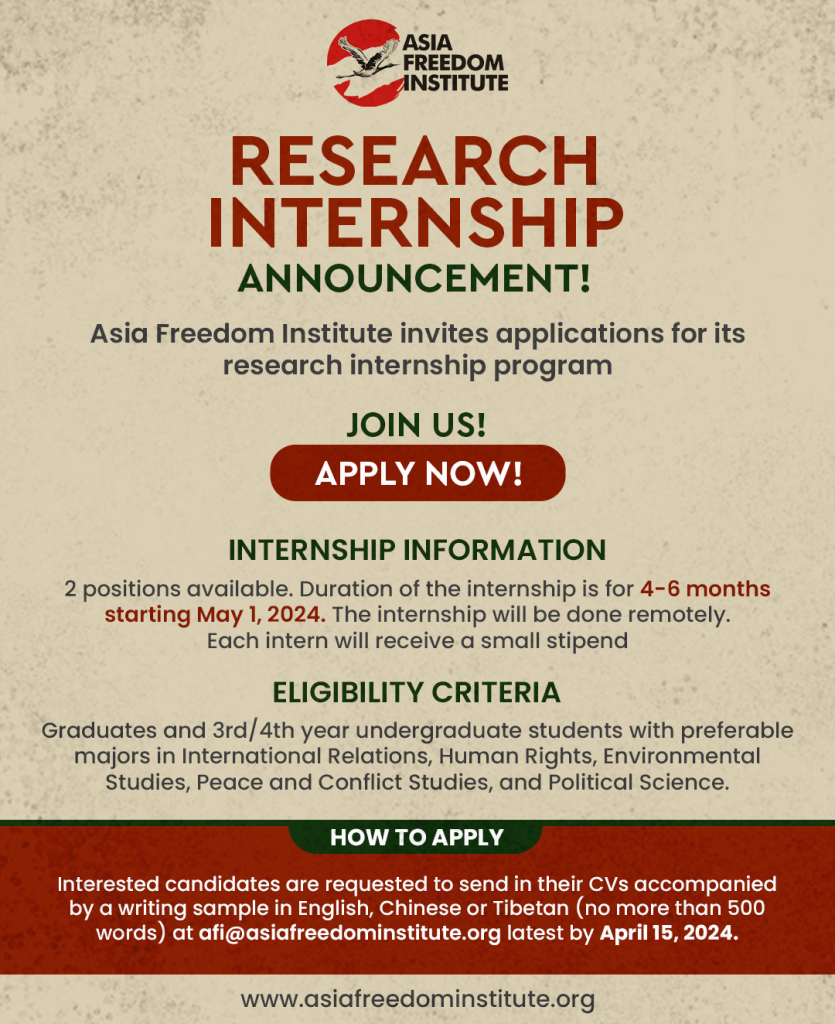The Congressional-Executive Commission on China (CECC) released the Commission’s 2023 Annual Report on human rights conditions and rule of law developments in China. The US Congress created the CECC in 2000 to monitor China’s compliance with international human rights standards, to encourage the development of the rule of law in the PRC, and to establish and maintain a list of victims of human rights abuses in China. The Commission comprises nine Senators, nine members of the House of Representatives and five senior Administration officials appointed by the President. Current Chair and Co-chair are Representative Christopher Smith and Senator Jeff Merkley respectively.
Key findings from the CECC report include:
- Authorities continued to harass, detain, and imprison people who participated peacefully in in-person protests, demonstrations, and other gatherings, including those involved in the White Paper protests.
- During the Commission’s 2023 reporting year, PRC authorities tightened control over civil society, bolstering oversight of legal nongovernmental organizations (NGOs), which the Chinese government calls “social organizations” (SOs), and widely cracking down on the activities, expression, and existence of unregistered or “illegal social organizations” (ISOs), including human rights defenders, religious communities, and groups promoting labor rights, women’s rights, and the rights of lesbian, gay, bisexual, transgender, and questioning (LGBTQ) persons.
- During the Commission’s 2023 reporting year, Chinese Communist Party and government officials championed the “integration” of ethnic minorities, continuing the implementation of policies contravening the rights of Uyghurs, Tibetans, Mongols, Hui, and other ethnic minorities to maintain their own languages and cultures. The October 2022 election of Pan Yue to the Party Central Committee, following his June 2022 appointment to the State Ethnic Affairs Commission, indicated that Chinese leader Xi Jinping’s policies of assimilation and “ethnic fusion” would likely be maintained.
- The PRC continued to restrict, and seek to control, the religious practices of Tibetans, the majority of whom practice Tibetan Buddhism. Authorities in Tibetan areas issued prohibitions on forms of religious worship, particularly during important religious events or around the times of politically sensitive anniversaries, and restricted access to religious institutions and places of worship, including Tibetan Buddhist monasteries and temples. The PRC continued to assert control over the process of selection and recognition of Tibetan Buddhist reincarnated teachers, including the Dalai Lama.
- Research published this past year indicated that Turkic and Muslim individuals formerly detained in mass internment camps continued to serve long prison terms. Official figures on prosecutions in the Xinjiang Uyghur Autonomous Region (XUAR) released in February 2022 and analyzed by Human Rights Watch showed that more than half a million people had been sentenced and imprisoned in the region since 2017, when authorities began carrying out the mass detention, in both prisons and mass internment camps, of Turkic Muslims.
- During this reporting year, authorities in the XUAR maintained a system of forced labor that involved former mass internment camp detainees and other Turkic and Muslim individuals. Officials continued two distinct types of forced labor—one involving current and former mass internment camp detainees, and the other, referred to as “poverty alleviation through labor transfer” (tuopin zhuanyi jiuye), involving people who usually have not been detained, often referred to as “surplus labor.”
- Hong Kong authorities continued to prosecute individuals for violating the National Security Law, under which basic procedural rights, such as trial by jury and presumption of innocence, are disregarded. Hong Kong extended the restrictions on procedural rights to crimes that the government deems to involve national security, augmenting authorities’ ability to punish people for peacefully exercising their universally recognized rights. Hong Kong authorities also applied the law extraterritorially, charging people with criminal offenses for actions committed outside of Hong Kong, creating a chilling effect that had a global reach.
- The PRC continued a multi-faceted campaign of transnational repression against critics, Uyghurs, Hong Kongers, and others to stifle criticism and enhance control over emigrant and diaspora communities. After engaging in China-related protests abroad, some individuals experienced reprisal from Chinese authorities, intimidation or harassment from unidentified individuals, or self-censorship due to fear of reprisal. Authorities in the United States reported criminal charges against or arrested several groups and individuals involved in such PRC-led transnational repression plots.
- The Commission observed reports that the PRC is targeting foreign politicians to influence them to support the Chinese Communist Party. This past year, former Solomon Islands Premier Daniel Suidani claimed he was ousted from his post due to PRC political influence operations, while Canadian intelligence officials announced they had evidence of PRC influence operations targeting Canadian policymakers Michael Chong, Jenny Kwan, and Erin O’Toole.
For More:
2023 CECC Annual Report Executive Summary
2023 CECC Annual Report


